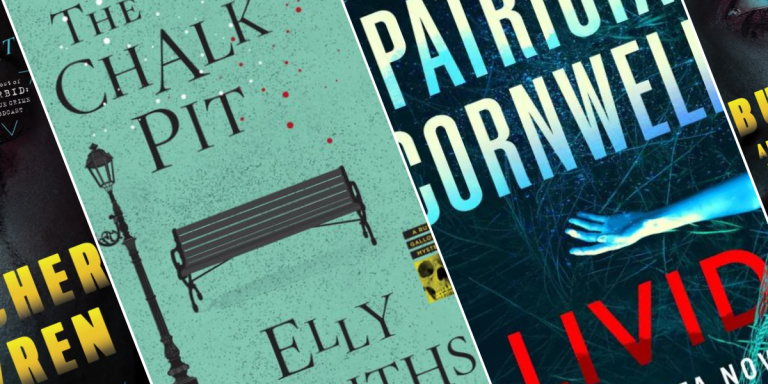Agatha Christie Screen Spotlight: Anime Series ‘Agatha Christie’s Great Detectives Poirot and Marple’

When you think of classic anime characters, you probably don’t think of Hercule Poirot and Miss Marple. But Agatha Christie’s two most famous detectives joined the ranks of Pikachu, Goku and Sailor Moon with the 2004 Japanese animated series Agatha Christie’s Great Detectives Poirot and Marple. It’s a testament to the versatility of both Christie’s stories and the anime style that the two seemingly disparate elements fit together so smoothly.
Great Detectives also remains surprisingly faithful to the novels and short stories it adapts, despite a few adjustments. The biggest change is the addition of a very familiar anime type of character, teenage girl Maybelle West (Fumiko Orikasa), to tie together the alternating Poirot and Miss Marple episodes. Poirot (Kōtarō Satomi) and Miss Marple (Kaoru Yachigusa) never meet, but they’re connected by Maybelle, who is Miss Marple’s grand-niece and becomes Poirot’s assistant after meeting him in the first episode.
The 16-year-old Maybelle, who leaves her girls’ school after the first episode but still often dresses in what looks like a schoolgirl uniform, is a somewhat stereotypical anime heroine, brimming with wide-eyed enthusiasm as she accompanies Poirot and Miss Marple on their cases, and always insinuating herself into their investigations. Her constant companion is a duck named Oliver, whom she carries around in a picnic basket. He wears a bright red bow and behaves more like a dog than a duck, following Maybelle around and quacking at inopportune moments.
That may sound annoying, but Great Detectives effectively integrates Maybelle into Christie’s well-worn stories, even if the show could probably do without Oliver. About two-thirds of the 39 episodes feature Poirot stories, but both he and Miss Marple get the spotlight as dedicated and thoughtful detectives. These versions are less mischievous and lively than in other adaptations of the two characters, with their quirks toned down in favor of an emphasis on duty and honor.
Poirot still fondles his mustache and talks about his “little gray cells,” though, and in the two-part episode based on Christie’s short story “The Kidnapped Prime Minister,” he pauses his investigation into the abduction of the British Prime Minister so that he can have a satisfying multi-course dinner at a French restaurant. Miss Marple is less of a nosy busybody than she is in other onscreen portrayals, but she still has a sense of quiet superiority as she easily figures out secrets that other people fail to comprehend. She comes off as unassuming and deferential, but that’s a cover for her fierce powers of deductive reasoning.
Maybelle does not have such fierce powers, but she makes up for it in eagerness. She’s a bit out of place in the 1930s U.K. setting, but she functions as a sort of audience surrogate, talking about her love for Arsène Lupin stories and essentially coming across as the world’s biggest fan of both Poirot and Miss Marple. For Japanese viewers who may not have been familiar with Christie’s characters, Maybelle represents a gateway to learning about both of them.
Even as the title sequence focuses on Maybelle, with a sickly sweet theme song from Japanese pop icon Tatsuro Yamashita that features lyrics completely unrelated to solving crimes, Great Detectives lures viewers in to a respectful, engaging adaptation of Christie’s work. Available in its entirety on YouTube, it’s a perfect starting point for younger viewers, or anyone looking for a bright, accessible take on the vintage detective story.
By clicking 'Sign Up,' I acknowledge that I have read and agree to Hachette Book Group’s Privacy Policy and Terms of Use
What to Read Next
Josh Bell is a freelance writer and movie/TV critic based in Las Vegas. He’s the former film editor of Las Vegas Weekly and the former TV comedies guide for About.com. He has written about movies, TV, and pop culture for Vulture, IndieWire, CBR, Inverse, Crooked Marquee, and more. With comedian Jason Harris, he co-hosts the podcast Awesome Movie Year.


